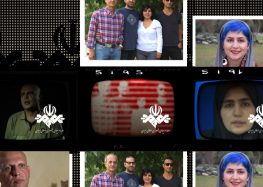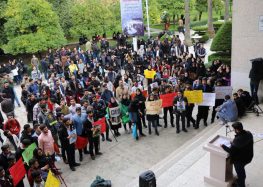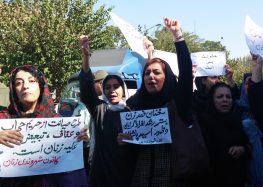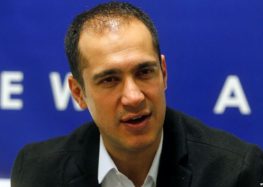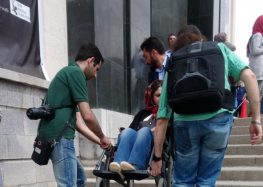Reformist MPs Call on Science Ministry to Allow “Starred” Student Activists to Attend University
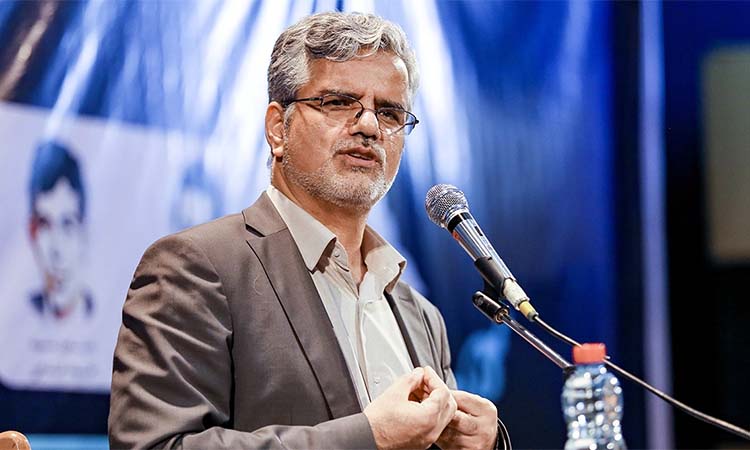
Students accused of engaging in peaceful activism continue to be banned from attending university in Iran despite President Hassan Rouhani’s election campaign promise that he would lift the ban.
On November 30, 2017, the reformist newspaper Jame-e Farda reported that between 150 and 200 graduate and PhD-level students were blocked from enrolling in Iranian universities in the current academic year because they had “stars” on their records. However, the actual number is likely much higher.
The report added that according to an anonymous source in the Science Ministry, many students have not publicized their situation hoping instead to solve the problem privately.
Since the creation of the Islamic Republic in 1979, student activists have been denied higher education through various methods. During President Mahmoud Ahmadinejad’s second term (2005-13), students accused of engaging in political activities received a star on their application, which blocks people from enrolling in Iranian universities.
Reformist member of Parliament Mahmoud Sadeghi told Jame-e Farda that Science Minister Mansour Gholami had told lawmakers that “more than 100” “starred” students are currently barred from enrolling in university.
Jame-e Farda reported that some students had been able to resume their studies by signing a pledge not to engage in political or religious activities. But MP Sadeghi noted that the pledge offers no guarantees.
“Even if they are signed willingly by the students, such pledges have no legal basis,” he said. “They deny students their freedom and civil rights that allow them to engage in lawful activities such as membership in student organizations.”
“The [reformist] Hope block in Parliament has made a recommendation to Mr. Gholami to set up a committee to take serious steps to resolve this issue,” he added. “We are also determined to pursue the matter with the Parliamentary Committee for Education.”
It is unclear if Science Minister Gholami has agreed to follow up on the recommendation.
During his first presidential campaign, Rouhani promised to get rid of the star system introduced under Ahmadinejad.
“We have to stop tagging students with stars,” he said at an election rally in June 2013. “Students should be free to carry out political and scientific activities unless they cross the red line against national interests.”
In October 2017, the Center for Human Rights in Iran (CHRI) interviewed Mahdieh Golru, a formerly imprisoned student who has been banned from enrolling in university since 2007 because she received a star on her record for engaging in peaceful political activism.
“I am using every available avenue to tell Mr. Rouhani and his Intelligence Minister [Mahmoud Alavi] that my right is being violated,” said Golru. “I hope they are listening.”
In December 2016, Golru posted an open letter to Rouhani on Facebook, reminding him that he had not yet fulfilled his campaign promise of allowing expelled political students to resume their studies.
“Three years after your promises, I am still banned from entering the university,” she added. “There is still a star next to my name. I keep asking myself: Where’s the honor you promised to bring back to university students?”

